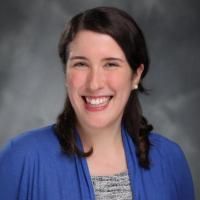Perceived barriers and supports to accessing community-based services for Uganda's pediatric post-surgical population.
Date
2019-12-15
Journal Title
Journal ISSN
Volume Title
Repository Usage Stats
views
downloads
Citation Stats
Abstract
Background: Access to pediatric surgical intervention in low-income countries is expanding, but investments in post-surgical care have received less attention. This study explored the barriers and supports for school-aged children to access post-surgical, community-based follow-up care in Uganda as perceived by community stakeholders.Materials and methods: This qualitative exploratory case study used in-depth, semi-structured interviews and in-country site visits among Ugandan organizations providing follow-up care to school-aged children in Uganda after surgery. Data from eight interviews and eight site visits were coded, analyzed, and cross-tabulated with a modified grounded theory approach.Results: Four key barriers to community-based follow-up care were identified: discrimination, financial barriers, geographical barriers (including transportation), and caregiver limitations to support recovery. Three key supports to successful access to and participation in community-based post-surgical recovery were identified: disability awareness, the provision of sustained follow-up care, and caregiver supports for reintegration.Conclusions: Increasing awareness of disability across local Ugandan communities, educating caregivers with accessible and culturally aware approaches, and funding sustainable follow-up care programming provide promising avenues for pediatric post-surgical recovery and community reintegration in contemporary Uganda.Implications for rehabilitationMultiple, intersecting factors prevent or promote access to post-surgical community-based services among school-aged children in Uganda.The most prominent barriers to pediatric community reintegration in Uganda include discrimination, lack of financial resources, geographical factors, and caregiver limitations.Community and interprofessional alliances must address disability awareness and sources of stigma in local contexts to promote optimal recovery and reintegration after surgery.Collaborative efforts are needed to develop sustainable funding for community-based care programs that specifically support pediatric post-surgical recovery and reintegration.Efforts to provide appropriate and empowering caregiver education are critical, particularly in geographical regions where ongoing access to rehabilitation professionals is minimal.
Type
Department
Description
Provenance
Subjects
Citation
Permalink
Published Version (Please cite this version)
Publication Info
Barton, Sarah Jean, Sahil Sandhu, Isabelle Doan, Lillian Blanchard, Alex Dai, Alexandra Paulenich, Emily R Smith, Brittney J van de Water, et al. (2019). Perceived barriers and supports to accessing community-based services for Uganda's pediatric post-surgical population. Disability and rehabilitation. pp. 1–12. 10.1080/09638288.2019.1694999 Retrieved from https://hdl.handle.net/10161/19720.
This is constructed from limited available data and may be imprecise. To cite this article, please review & use the official citation provided by the journal.
Collections
Scholars@Duke

Sarah Jean Barton
Program Director; Assistant Professor of Orthopaedic Surgery; Assistant Professor of Theological Ethics, Duke Divinity School
I hold a dual appointment in the School of Medicine and Duke Divinity School. My primary areas of scholarship include Christian theology and ethics, disability studies, accessible education, and occupational therapy. I focus on participatory research methodologies in partnership with people experiencing intellectual disabilities as well as educational research on access.
You can order my book, Becoming the Baptized Body: Disability and the Practice of Christian Community, from Baylor University Press or your local bookstore!
Education
Doctor of Theology
Certificate in Reflective and Faithful Teaching
Duke Divinity School (Durham, NC, USA), 2014 - 2019
Master of Theological Studies
summa cum laude, Certificate in Anglican Studies
Duke Divinity School (Durham, NC, USA), 2012-2014
Master of Science
Occupational Therapy, Pi Theta Epsilon
Boston University (Boston, MA, USA), 2009-2012
Bachelor of Science
magna cum laude, Biology
Seattle Pacific University (Seattle, WA, USA), 2005-2009

Emily R Smith
Emily Smith, PhD, is an Assistant Professor at Duke University with research interests including children’s global surgery, poverty metrics, health economics, and global health policy. As an epidemiologist, she has worked with her in-country partners at the Edna Adan Hospital in Somaliland for the past 5 years on projects related to children’s surgical care, including defining the epidemiologic burden, assessing poverty trajectories among families with a child’s surgical need, geospatial analyses, and healthcare infrastructure. Prior to DGHI, her work at the University of North Carolina–Chapel Hill (UNC-CH) involved utilizing epidemiological methods, mathematical modeling techniques and cost-effectiveness research to determine effectiveness of various testing strategies among HIV exposed infants in sub-Saharan Africa.

Janet Prvu Bettger
Dr. Bettger’s research is dedicated to establishing real world evidence aimed to improve health care quality and policies that reduce the burden of disease and disability. As a health services researcher and implementation scientist, her research extends from observational studies to randomized and pragmatic trials. She was the Founding Director of Duke Roybal Center for Translational Research in the Behavioral and Social Sciences of Aging and the Founding Director of Undergraduate Initiatives for the Duke-Margolis Center for Health Policy. She has examined implementation of several integrated care models to improve the transition home from the hospital (VERITAS with virtual exercise therapy after knee replacement, COMPASS for stroke, RECOVER for stroke in rural China, and coordinated care for trauma patients in Tanzania). She also studies implementation of community-based models of care that can prevent functional decline. These include the CTSA-funded IMPAC RCT of integrating physical therapists into primary care as first line providers to address musculoskeletal pain, the VA-funded Gerofit program of structured and progressive in-person and virtual group exercise for older Veterans, MRC-funded SINEMA RCT of a village-based model supporting stroke recovery in China, and a NIDCD study comparing three primary care protocols for older adult hearing healthcare.
In addition to the evidence translation studies in China (RECOVER and SINEMA) and Tanzania, she has partnered with experts in Singapore on stroke systems research, and worked on large cluster randomized trials to improve evidence-based care in Brazil, Peru, Argentina (BRIDGE-Stroke) and China (CNSR and Golden Bridge). To address health locally, she was the faculty sponsor to launch Exercise is Medicine at Duke and Help Desk, a student volunteer community resource navigator model addressing social determinants of health.
Dr. Bettger received her BA from the University of Western Ontario, Canada and her MS from the University of Wisconsin–LaCrosse where she studied community reintegration for stroke and brain-injured patients transitioning from hospital to home. Her doctoral training in Rehabilitation Sciences, completed at Boston University, concluded with an investigation of patterns of functional recovery and factors affecting outcomes in patients transitioning home following acute rehabilitation. While working on her doctorate, she also worked in state government as the director of the Paul Coverdell National Acute Stroke Registry. Dr. Bettger completed post-doctoral training at the University of Pennsylvania with a NIH NRSA research fellowship in neurorehabilitation, a research fellowship at the NewCourtland Center for Transitions and Health, and a Switzer Fellowship funded by the National Institute on Disability and Rehabilitation Research to study the role of the environment on functional outcomes. She completed additional research training at Duke as a mentored scholar in comparative effectiveness research funded by AHRQ. As of July 2022, she is an Adjunct Associate Professor for Duke's Department of Orthopaedics and has transitioned out of her role as Co-Director of the Duke Clinical and Translational Institute (CTSA) Pilots Accelerator Core working with NCCU. She is affiliate faculty with Duke's Science and Society, Duke-Margolis Center for Health Policy, the Duke Clinical Research Institute (DCRI) and Duke Global Health Institute (DGHI), is a Senior Fellow of the Duke Center for the Study of Aging and Human Development, and is a Fellow of the American Heart Association.
Unless otherwise indicated, scholarly articles published by Duke faculty members are made available here with a CC-BY-NC (Creative Commons Attribution Non-Commercial) license, as enabled by the Duke Open Access Policy. If you wish to use the materials in ways not already permitted under CC-BY-NC, please consult the copyright owner. Other materials are made available here through the author’s grant of a non-exclusive license to make their work openly accessible.
